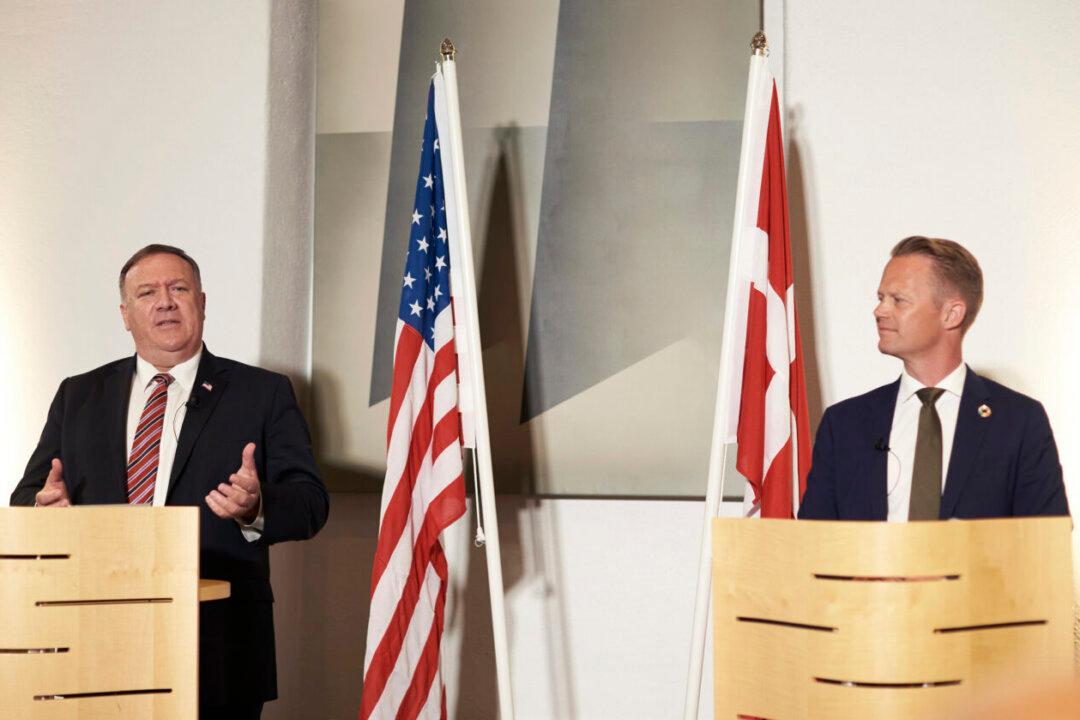U.S. Secretary of State Mike Pompeo said Wednesday during his visit in Denmark that the United States will become more active in the Arctic to counter growing Russian influence and thwart attempts by China to insert itself into the region.
After talks with Denmark’s Prime Minister Mette Frederiksen, Pompeo met with Danish Foreign Minister Jeppe Kofod, Faroese Foreign Minister Jenis Av Rana, and Greenlandic Foreign and Energy Minister Steen Lynge, in Copenhagen, Denmark to discuss and coordinate all aspects of Arctic policy including security.





